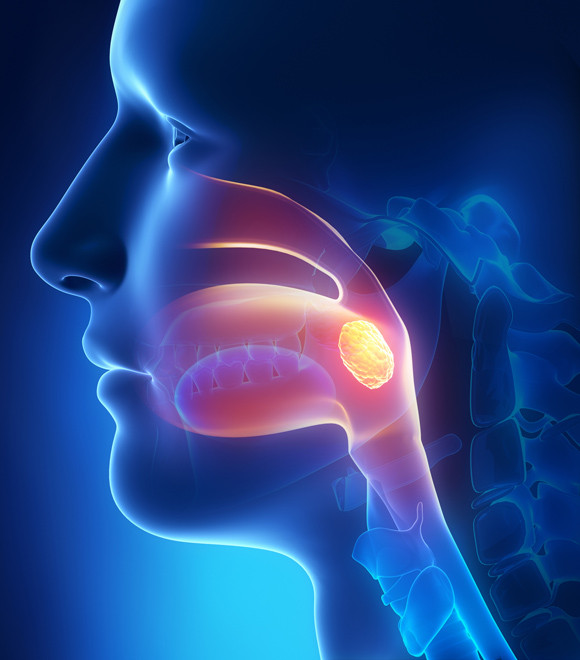

Why Asan Medical Center is the Optimal Choice for
Head and Neck Cancer Treatment
Head and neck cancers are a group of cancers that affect the tissues and organs of the head and neck including the oral cavity, oropharynx, hypopharynx, larynx (voice box), nasopharynx, nasal cavity and paranasal sinuses, salivary glands, and thyroid glands. This region is not only anatomically complex but also responsible for critical functions such as swallowing, speaking, and breathing. Therefore, in addition to initial treatment, post-treatment reconstruction and rehabilitation are essential for survival and improving quality of life.
Asan Medical Center has established the Head and Neck Cancer Center, focusing on the diagnosis, treatment, reconstruction, and rehabilitation of all types and stages of head and neck cancers. More than 200 patients with head and neck cancer are registered at the Center every year. As one of the largest head and neck cancer centers in Korea, we deliver excellent treatment outcomes based on extensive clinical experience and advanced technology..
The Head and Neck Cancer Center at Asan Medical Center provides comprehensive, personalized treatment through a multidisciplinary team of specialists from otorhinolaryngology, oncology, radiation oncology, radiology, and other fields. Treatment plans are tailored to each patient and may include surgery, radiation therapy, chemotherapy, and speech and swallowing rehabilitation.
Treatment Options and Disease-Specific Care

Surgical treatment and chemoradiotherapy
In case of early-stage carcinomas confined in the primary site or without cervical lymph node metastasis, surgical removal or radiotherapy are recommended. In cases where the carcinoma extensively invades surrounding tissues or involves multiple cervical lymph nodes, a function-preserving surgical approach is pursued whenever possible, followed by additional chemoradiotherapy.
Since these kinds of cancers are in the head and neck, close to vital organs and involving important functions like eating, speaking, and breathing, it is hard to secure sufficient margin for safety when removing the carcinomas. Therefore, it is essential to select an appropriate surgical approach and have functional and cosmetic reconstruction.
The highly experienced head and neck cancer team in the Department of Otorhinolaryngology-Head and Neck Surgery at Asan Medical Center works closely with the Department of Plastic Surgery to provide personalized surgical treatment and reconstruction, as well as dedicated voice and swallowing rehabilitation. In some cases, laryngeal microsurgery or transoral robotic surgery may be performed. After surgery, radiotherapy may be administered, and in some cases, concurrent chemoradiotherapy is conducted as a non-srugical treatment option.
1) Thyroid cancer
For thyroid cancer, surgery is the primary treatment, and in some patients, radioactive iodine therapy is additionally administered. Surgical treatment includes partial and total thyroidectomy. If the cancer has spread to the cervical lymph nodes or if lymph node metastasis is suspected, a neck dissection is also performed. Postoperative complications mostly occur shortly after surgery and may include bleeding, difficulty in breathing, infection, hypoparathyrodism, and vocal cords paralysis.
If total thyroidectomy is performed, thyroid hormone is no longer produced, so patients should take thyroid hormone medicine for life, but it is a pill that is easy to take like vitamin. If partial thyroidectomy is performed, most patients do not need to take thyroid hormone medicine, but do need to take medicine in some cases.
2) Oral cancer, oropharyngeal cancer, and laryngeal cancer
Treatment methods vary depending on the stage of the disease. A malign tumor is treated with surgical treatment, radiotherapy, and chemotherapy (drug therapy). When the cancer is confined in the primary site or without cervical lymph node metastasis, surgical removal or radiotherapy is recommended. In contrast, when the cancer invades the primary site or spreads to the cervical lymph nodes, functional preservation surgery followed by chemoradiotherapy is an appropriate treatment option.
AMC Head and Neck Cancer Center conducts a multidisciplinary meeting every Wednesday afternoon, where medical professionals from oncology, radiation oncology, radiology, plastic surgery, and other fields collaborate to discuss and find the optimal treatment for each patient.
3) Salivary gland cancer
In cases of salivary gland cancer, accurate early diagnosis and surgical resection are critical. A treatment plan is developed based on tumor size and degree of metastasis, and if the tumor did not directly invade into the main brain nerves like facial nerves, the approach prioritizes preserving nerve function as much as possible. Surgery is the primary and first treatment for operable tumors, and radiotherapy or chemotherapy is performed in cases where surgery is not feasible.
Treatment Outcomes at Asan Medical Center
Asan Medical Center performs over 700 head and neck cancer surgeries and more than 100 complex reconstructive procedures annually in collaboration with a highly skilled plastic surgery team, demonstrating the extensive experience and commitment to delivering specialized, patient-centered care at AMC.
In addition, the head and neck surgery team at AMC utilizes its extensive experience and expertise to perform a wide range of robotic head and neck surgeries, including transoral robotic surgery (TORS) and robotic thyroid surgery. These advanced techniques enhance surgical accuracy and improve patient satisfaction.

